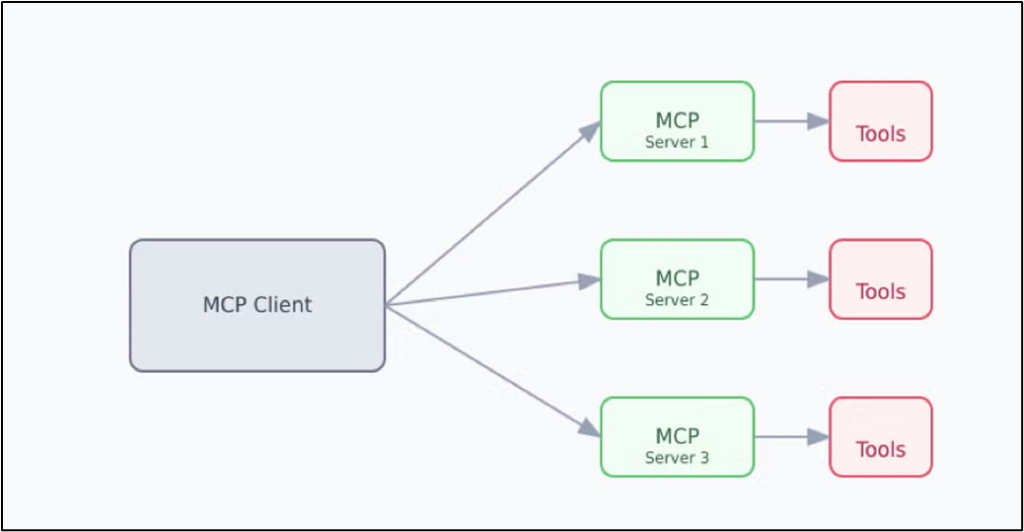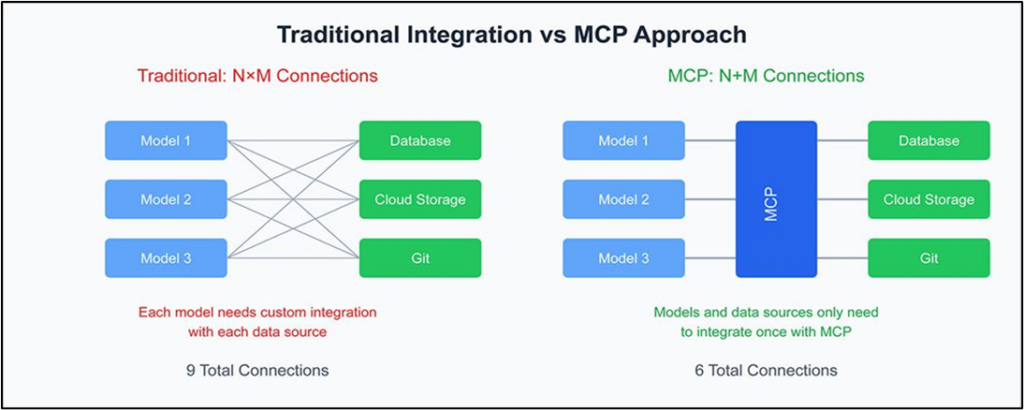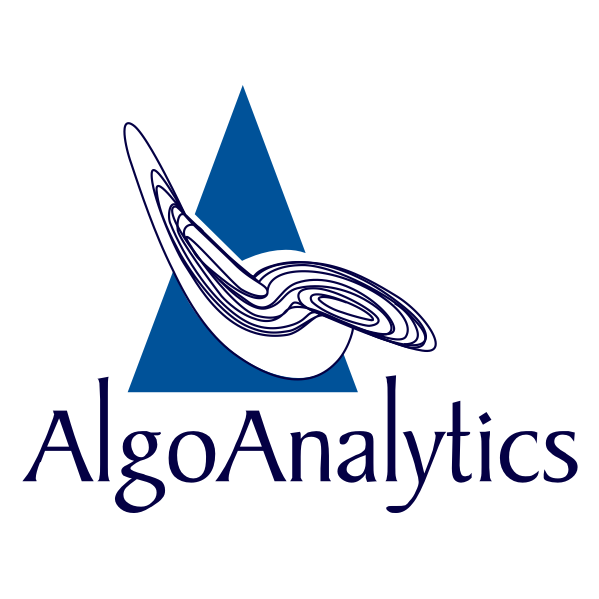By Sujit Waghmare

Introduction
Generative AI (GenAI) has revolutionized industries with its remarkable capabilities. However, integrating GenAI with external tools and data sources traditionally involved complex, custom-built solutions. Recently, the Model Context Protocol (MCP) emerged as a transformative standard, offering streamlined integration, enhanced flexibility, and improved scalability.
Traditional GenAI Approaches
Traditional GenAI implementations typically involve:
- Monolithic architectures: requires manual integration with each external service.
- Complex prompt engineering: necessitates precise and extensive prompts.
- Static workflows: offers limited flexibility and adaptability.
- High maintenance overhead: with any change in external services demanding significant development efforts.
These approaches often result in cumbersome systems, challenging to maintain and scale effectively.
Model Context Protocol (MCP)
A Modern Solution MCP, introduced by Anthropic, is designed to standardize and simplify the interaction between AI models and external tools, enabling:
- Dynamic discovery and invocation of external services.
- Structured context management for more accurate AI responses.
- Modular and reusable integrations, significantly reducing development overhead.
- Enhanced security features such as built-in access control and authentication.
MCP operates on a client-server model, with GenAI models (clients) dynamically interacting with standardized MCP servers exposing various functionalities.
| Comparative Analysis | ||
| Aspect | Traditional Approach | MCP Approach |
| Integration Complexity | High; custom-built for each external service | Low; standardized, plug-and-play |
| Flexibility | Low; rigid interactions | High; dynamic tool selection |
| Prompt Engineering | Extensive and complex | Simplified and focused |
| Maintainability | Difficult and costly | Easier, modular updates |
| Scalability | Limited; monolithic structures | Highly scalable, modular architecture |
| Security | Variable; dependent on individual implementations | Robust; standardized security protocols |
Use Case Example: Legal Document Analyzer
Scenario:
A legal team needs a system to efficiently analyze various legal contracts to identify and extract key clauses, evaluate compliance, and summarize critical metadata.

Security Considerations
While MCP significantly enhances GenAI integration, developers must remain aware of security challenges:
- Prompt Injection: Risks associated with malicious prompt injection attacks.
- Unauthorized Data Access: Potential unauthorized access to sensitive data.
Mitigation involves robust authentication, access control protocols, regular security audits, and specialized security solutions like MCP Guardian.
Industry Adoption & Future Trends
Major industry players, including Microsoft, OpenAI, and Google DeepMind, have begun adopting MCP. The recent release of Spring AI MCP for Java further underscores growing industry support, indicating MCP’s pivotal role in future GenAI developments.
The increasing adoption promises enhanced interoperability, flexibility, and efficiency, positioning MCP as a cornerstone for next-generation AI solutions.
Conclusion
The Model Context Protocol (MCP) represents a significant paradigm shift from traditional GenAI implementations. By providing standardized, flexible, and scalable integrations, MCP empowers developers to build advanced, secure, and modular GenAI systems efficiently. Embracing MCP today positions organizations at the forefront of innovation, ready to leverage the full potential of Generative AI.


